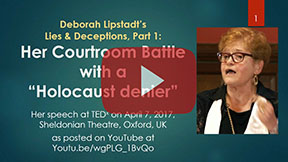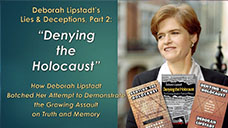It may seem odd to even talk about this here so openly, but there are apparently a few individuals who have the generosity to include me in their Last Will. This has happened once before, but not with the desired effect. Fact is that in many countries stipulations made in a testament can be challenged by relatives of the deceased, if the purpose of the bequest is considered immoral or illegal.
It is no secret that many of my past and even present activities and public statements are illegal in many countries of the world, and considered immoral in many more.
As a result, it happened that the funds dedicated to me by a benefactor in his Last Will merely resulted in legal expenses, as his testament was successfully challenged by his family. The basis for this was that this late benefactor had mentioned in his Will what he hoped I would do with the money: further the revisionist cause. This being illegal and immoral in his country of citizenship led to the court’s decision that the executor of his Last Will is actually prohibited from giving me the funds my late benefactor wanted me to have.
To cut a long story short: If you consider including me in your Last Will, please do NOT mention anything in it about my past or present activities, actual or alleged opinions, why you want me to receive something or what you want me to do with the bequest. Simply identify me as the person who is supposed to receive what you want me to receive. If you need more than just my name (which is unique already) and my address as published here, please contact me so I can assist.
Permit me already now to express my sincere gratitude for your benevolent considerations and for understanding that I prefer not being bequeathed into financial ruin.
Another Way of Helping: Beneficiary Deeds
Apart from including me in your Last Will, there is another rather simple and fail-proof way you can be of tremendous help: If you own real estate and consider me as the person who should take ownership of it after your passing, you can file with your county’s recorder a beneficiary deed, also called a transfer-on-death deed (TOD). This is a notarized legal document that allows a property owner to transfer real estate to a beneficiary upon their death. Such a deed automatically transfers ownership to the named beneficiary when the owner dies, upon proof of death with a death certificate or a certified copy of it. A beneficiary deed avoids the probate process, bypasses the contents of a will, and prevents taxation upon sale except for capital gains tax in case the sales price exceeds the assessed value at the time of transfer of ownership.
Such a Deed is particularly attractive to those who do not have any descendants or other close living relatives.
If you consider doing this, please make sure that your Beneficiary Deed document is legal in your state, that it is properly notarized, and that you file it with your county’s recorder office. You may also want to inform me about it, so I know of it.
Thank you very much for your kind and generous consideration!






